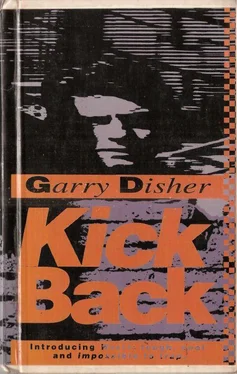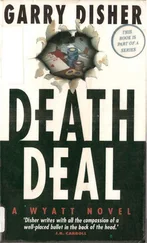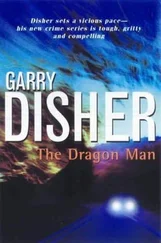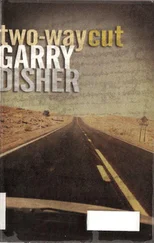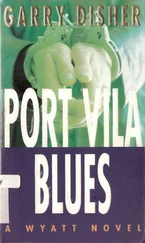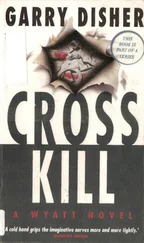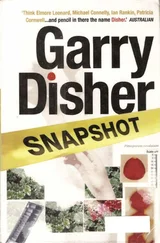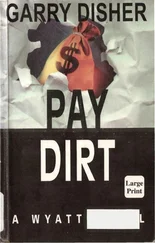Garry Disher - Kick Back
Здесь есть возможность читать онлайн «Garry Disher - Kick Back» весь текст электронной книги совершенно бесплатно (целиком полную версию без сокращений). В некоторых случаях можно слушать аудио, скачать через торрент в формате fb2 и присутствует краткое содержание. Жанр: Криминальный детектив, на английском языке. Описание произведения, (предисловие) а так же отзывы посетителей доступны на портале библиотеки ЛибКат.
- Название:Kick Back
- Автор:
- Жанр:
- Год:неизвестен
- ISBN:нет данных
- Рейтинг книги:3 / 5. Голосов: 1
-
Избранное:Добавить в избранное
- Отзывы:
-
Ваша оценка:
- 60
- 1
- 2
- 3
- 4
- 5
Kick Back: краткое содержание, описание и аннотация
Предлагаем к чтению аннотацию, описание, краткое содержание или предисловие (зависит от того, что написал сам автор книги «Kick Back»). Если вы не нашли необходимую информацию о книге — напишите в комментариях, мы постараемся отыскать её.
Kick Back — читать онлайн бесплатно полную книгу (весь текст) целиком
Ниже представлен текст книги, разбитый по страницам. Система сохранения места последней прочитанной страницы, позволяет с удобством читать онлайн бесплатно книгу «Kick Back», без необходимости каждый раз заново искать на чём Вы остановились. Поставьте закладку, и сможете в любой момент перейти на страницу, на которой закончили чтение.
Интервал:
Закладка:
If he’d known her better he might have told her about scraping the bottom of the barrel with people like the Youngers. But he felt his luck had changed now; the Youngers were irrelevant. ‘I like working through the details,’ he said.
‘That’s obvious. Just now, when everyone was here, you seemed to be interested only in the job. Not them, not me.’
‘I keep the distractions till later.’
‘Uh huh,’ she said, nodding ironically.
He waited to see what she would do.
What she did was touch his chest on the way out and say, ‘I can do more than just take polaroids of the layout.’
Fourteen
Monday night was Sugarfoot Younger’s night for prowling the bars and dance floors of Club H in King Street, keeping an eye on the patrons, thumping heads that got out of line. Ivan had hard cash invested in Club H. Sugarfoot didn’t know if Club H was a Bauer operation or not. All he knew was, he hated the powder-blue tux, and the women were slags. You’d think as bouncer he’d be in a position to grab some of the action, but he hadn’t scored once. All the chicks seemed to come from Mount Waverley and wanted to know how come he drove an old car.
At eleven o’clock he popped his knuckles and stepped out for some fresh air. Being a Monday night, and mid-winter, there wasn’t much action in King Street. Not like the time he worked a Saturday night shift: guys openly dealing, chicks crying rape, torn scalps, cops, ambulances, a couple of bouncers charged with assault. Do this full time? Fifteen bucks an hour? Forget it.
He was more and more determined to turn pro. Seeing Bauer in action this afternoon had left him feeling unsettled and excited. Bauer had the right idea.
Monday night bouncer? Collector of small debts? No input into planning? Fuck that. One swift, clean, impressive hit, that’s all he’d need.
He finished work at one o’clock. By one-thirty he was sitting in the Customline in the car park of the Housing Commission flats in Racecourse Road. Hobba lived on the eighth floor, but Sugarfoot didn’t go up to check it out. Too many ethnics about. Leave your car unattended and they’d strip it. Look twice at them and they’d knife you.
Sugarfoot started the Customline and drove out of the car park and across to a long, narrow street in Brunswick. He looked sourly at the houses. They were small workers’ bungalows, but the street was well on the way to becoming yuppie heaven. Already there were brass numerals and restored verandahs. Pedersen’s weatherboard was set amid tidy garden beds and gravel paths. Gloomy fruit trees dominated the back yard.
Sugarfoot sat for a while. There was no sign of life, but he didn’t expect there to be. If Hobba and Pedersen did have something planned with Wyatt, and if it hadn’t happened yet, their daytime movements might be the key. Meanwhile, finding out where they lived was all part of the groundwork.
Sugarfoot drove home and set the alarm for eight o’clock. Fucking terrible hour but he was treating Tuesday as the first day of the rest of his life.
Fifteen
Before going for the guns on Tuesday morning, Wyatt checked out of the Gatehouse. He never spent more than one night in a place when he was setting up a job. He checked into a cheap hotel nearby, put his remaining cash in a money belt around his waist, and entered the Underground at Parliament Station. He caught a train that went through Burnley. Out of habit he sat at the end of the carriage, where he had a clear view of the aisle and the entry and connecting doors. He kept his hand on the knife in his pocket. That was habit, too. But knives were useful. People respected the swift threat of a blade where a gun or a raised fist simply flustered them.
The carriage was almost empty. Two men, one elderly, the other about forty, sat near the middle doors. Three middle-aged women were going home with their shopping. Wyatt listened to them comparing the hairdressing salons in Myer and David Jones. Two young Vietnamese men, quick and glittering, sat at the far end of the carriage. Across from Wyatt was an overweight teenage mother wearing stretch jeans and scuffed moccasins. She had trouble keeping still, and shouted rather than spoke endearments to a squawling child in a pusher. There was graffiti on the windows, the script bold and mocking.
He got off at Burnley Station and stood at the timetable board watching others get off, watching for lingerers. He saw the young mother light a cigarette and shake the pusher. She joined a huddle of people at the exit gate, people who could easily be her parents, siblings, neighbours. They disappeared into the flat, exhausted streets. Sour poverty and contention and mindless pride, Wyatt thought. He’d grown up in a suburb like this. Everyone had talked solidarity, but he’d never seen it.
Other trains came in and pulled out again. He left the station and walked to Cowper Road, a narrow street of sodden workers’ cottages and grimy workshops. Cars heaved across small craters in the road surface, throwing up gouts of oily water.
Number twenty-nine was a corrugated-iron shed about thirty metres deep. A sign above the door said Burnley Metal Fabricators. On a smaller sign was the word ‘office’ and an arrow that pointed left to a turn-of-the-century cottage which shared a wall with the shed.
Apart from the patchy lawn and a chained Alsatian on the verandah, there was no sign of life at the cottage. The curtains were imitation lace. Steel bars secured the windows. Keeping a wary eye on the Alsatian, Wyatt mounted the steps to the door. The dog opened and closed an eye and yawned squeakily. Its tail flapped. Wyatt pressed the buzzer.
A voice crackled on the intercom. ‘Yeah?’
‘Flood?’
‘Yeah.’
‘I rang you last night,’ Wyatt said.
He heard shuffling footsteps behind the door and sensed an eye at the peephole. Two locks were opened. The door swung back. Flood, a small, gloomy man dressed in overalls, said nothing but turned and shuffled back into the house. The air was hot and stale and smelt of toast and pipe smoke. Wyatt followed Flood through a poky sitting-room where gas flames flickered in an ancient heater, to a kitchen at the back of the house. The ceramic sink was chipped and yellowed. Beaten fruit-tin lids had been nailed over cracks in the linoleum. A nervy black cat eyed Wyatt from a wooden kitchen dresser.
‘I asked around,’ Flood said. ‘The word is, you’re okay.’
Wyatt said nothing.
Flood shrugged. He had a staved-in face. Whisker tufts grew high on his cheeks as if he shaved without a mirror. A thin brown rime coated his lips. ‘Suit yourself,’ he said. He sat down. There was another chair but Wyatt remained standing. ‘What are you after?’
‘Three handguns.’
‘Prices range from two hundred and fifty bucks. You good for it?’
‘Yes.’
‘I’ll buy back after-half what you paid.’
Wyatt nodded.
‘Next door,’ Flood said.
He led Wyatt into the backyard and through a side door to the long shed. It was dark inside, the air heavy with the smell of oil. Dismembered machines, heavy lathes, copper tubing, iron scraps and metal shavings were scattered about the floor. Weak, wintry light barely penetrated the grimy windows in the roof. Everything was coated with grease and dust. Flood picked his way through the shed. It was an unlikely place for such small, precise instruments as guns. Wyatt was about to challenge Flood when Flood pulled back the corner of a dirty rug to reveal a trap-door. They climbed down into a long, narrow chamber.
Wyatt understood. ‘Nice,’ he said.
The armourer showed emotion for the first time. ‘Like it?’ He pointed at the walls, floor and ceiling. ‘Completely soundproof. The lining absorbs ricochets. The target’s down there.’ He indicated the overhead pulley system and the sandbags stacked at the far end. Rubbing his hands together, he said, ‘Let’s do business.’
Читать дальшеИнтервал:
Закладка:
Похожие книги на «Kick Back»
Представляем Вашему вниманию похожие книги на «Kick Back» списком для выбора. Мы отобрали схожую по названию и смыслу литературу в надежде предоставить читателям больше вариантов отыскать новые, интересные, ещё непрочитанные произведения.
Обсуждение, отзывы о книге «Kick Back» и просто собственные мнения читателей. Оставьте ваши комментарии, напишите, что Вы думаете о произведении, его смысле или главных героях. Укажите что конкретно понравилось, а что нет, и почему Вы так считаете.
